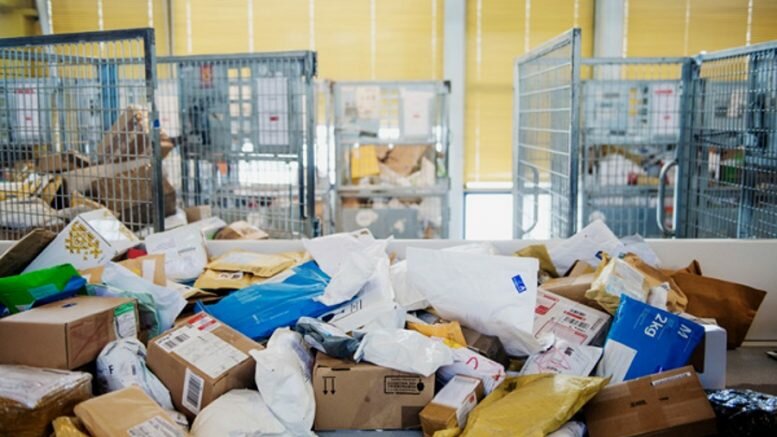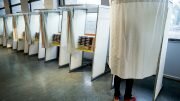Several seizures of the lethal drug DNP in operation OPSON
The Norwegian Customs Administration has seized nine consignments with the potentially lethal drug Dinitrophenol (DNP) in a large international action (OPSON VIII) where the Norwegian Food Safety Authority also participated. The action led to worldwide seizures of 16,000 tonnes and 33 million litres of food and beverages.
The OPSON VIII action is coordinated by Interpol and Europol. Various authorities and private actors from 78 countries participate in the action during the period of December 2018 to May 2019.
In Norway, the Customs Administration cooperates closely with the Norwegian Food Safety Authority. The Norwegian Food Safety Authority controlled 21 samples of coffee from importers and stores. The analyses revealed no lower quality coffee blended into the products examined.
Stopped nine consignments
The customs agency was especially looking for the potentially lethal drug DNP (2,4 Dinitrophenol). The customs officers seized nine postal items containing DNP. The action revealed consignments from Asia, Europe and South America.
DNP is marketed as fat-burning to bodybuilders and others who want to lose weight quickly. The drug was used in the treatment of obese persons in the 1930s, but the treatment was terminated when it was discovered just how potent and potentially fatal the drug is.
DNP is used, among other things, in explosives, fertilizers, imaging and staining of wood. The Norwegian Medicines Agency warns against use thereof. It informs on that there is no antidote on its webpage.
Europol’s Press release on operation OPSON
More than €100 million worth of potentially dangerous food and drinks was seized in the latest Operation OPSON, coordinated by Europol’s Intellectual Property Crime Coordination Centre and INTERPOL. 672 individuals were arrested so far, with investigations ongoing in many countries.
Police, customs, national food regulatory authorities and private sector partners across 78 countries* took part in the five-month OPSON VIII operation which ran from December 2018 through April 2019.
In total, some 16 000 tonnes and 33 million litres of potentially dangerous fake food and drink were seized as a result of more than 67 000 checks carried out at shops, markets, airports, seaports and industrial estates.
Tampered expiry dates on cheese and chicken, controlled medicines added to drink products and meat stored in unsanitary conditions were some of the offences discovered during the operation.
As in previous operations, illicit alcohol was the most seized item, totalling over 33,000 metric tonnes, followed by cereals and grains (+/- 3 628 metric tonnes) and condiments (+/- 1,136 metric tonnes).
Hurting the wallet
“This operation shows yet again that criminals will take advantage of any and every opportunity open to them to make a profit. The volume of the seizures confirms that food fraud affects all types of products, and all regions of the world”, Jari Liukku, Head of Europol’s European Serious and Organised Crime Centre states, adding:
“It is hurting the consumers’ wallets: in the best of cases, food fraud is the deception of consumers, whereby they pay for something they do not get, but in the worst cases, food fraud can result in serious harm to the public’s health. It is the duty of Europol and law enforcement more generally to make sure that what consumers get in their plates is genuine and safe.”
“Counterfeit and substandard food and beverages can be found on the shelves in shops around the world, and their increasing sale online is exacerbating the threat that food crime poses to the public,” said INTERPOL’s Director of Organized and Emerging Crime, Paul Stanfield. “Operation OPSON VIII saw a substantial amount of counterfeit food and drink taken out of circulation, but there is much more that can be done. INTERPOL calls for further efforts and better coordination at the national, regional and international levels in order to stem this tide which endangers the health of consumers worldwide”.
No thought to the human cost
The investigations run at the national level brought to light the fact that criminals will fake any type of food and drink with no thought to the human cost as long as they make a profit. In Lithuania, the customs seized some 335 000 counterfeit sweets packaged in a way to attract the attention of one of the most vulnerable consumer groups – children. In Italy, the NAS Carabinieri seized over 150 000 litres of tampered poor quality sunflower oil made to look like extra virgin oil by adding chlorophyll and beta-carotene to the finished product.
Europol’s Intellectual Property Crime Coordination Centre, co-founded by the EUIPO, has been running this operation together with INTERPOL since 2011. A Europol mobile office was deployed in March 2019 for this operation in Hungary to support the local National Tax and Customs (NTCA) and National Food Chain Safety (NFCSO).
Action #1 targeting organic products
Participating countries: Austria, Belgium, Bulgaria, Cyprus, Spain, Finland, France, Croatia, Ireland, Italy, Lithuania, Portugal, Sweden, Slovenia, Slovakia, UK
For the first time, this year’s operation looked at organic food products and the growing trend of products falsely claiming to be organic in order to be sold at higher prices.
A targeted action led by the EU Commission with the support of Europol was run across 16 EU Member States to detect fraudulent practices pertaining to this field. More than 90 000 tonnes of suspicious organic products were checked, after which 9 individuals were arrested by the Spanish Guardia Civil (SEPRONA).
The illicit practices uncovered include the use of unauthorized substances, the diversion of conventionally produced food to the organic market and the use of falsified documents to blur the traceability of the products.
Read more about this case here: https://ec.europa.eu/food/safety/food-fraud/coord-act_en
Action#2 targeting the threat from 2,4-Dinitrophenol
Participating countries: Belgium, Bulgaria, Cyprus, Finland, Ireland, Italy, Latvia, Netherlands, Norway, UK
As part of OPSON VIII, 10 EU Member States took part in an action led by the UK targeting the sale of 2,4-Dinitrophenol (DNP), a toxic chemical which is sold as a fat burner (predominantly online). Consumption of DNP can have severe consequences for the health of consumers and has proven fatal in a number of instances.
A total of 23 seizures of DNP were made in the framework of this targeted action, through intelligence-led interventions at residential addresses, test purchases and through the detection of parcels by custom authorities. Through these seizures, it is estimated that the equivalent of over 50 000 capsules of DNP has been prevented from entering the consumer market. Comprehensive online activity has also taken place. In total, over 75 online sales offerings have been removed.
Action#3 targeting coffee
Participating countries: Austria, Belgium, Croatia, Cyprus, Denmark, Germany, Liechtenstein, Lithuania, Norway, Portugal, Slovenia, Switzerland, UK
During OPSON VIII, a targeted action was run across 13 European countries in order to uncover possible fraudulent practices pertaining to coffee labelled as 100% Arabica. With the support of Europol and the EU Commission, the action focused on the substitution of pure Arabica coffee (coffee variety of the highest quality) by cheaper lowland coffee (Robusta). In total, nearly 400 coffee samples were analysed as part of this action.
For the first time in the history of OPSON, laboratory cooperation was initiated and carried out within this targeted action. The results of the verification of the geographical origin are still ongoing and will be evaluated within the framework of the OPSON VIII follow-up. Moreover, a well-known company from the private sector supported this action by providing reference samples for authenticity testing as well as sector expertise.
OPSON VIII Participating countries
Albania, Australia, Austria, Belarus, Belgium, Botswana, Bulgaria, Burundi, Cambodia, Cameroon, Chile, China, Congo (Democratic Rep.), Croatia, Cyprus, Czechia, Denmark, Ecuador, Eritrea, Eswatini, Ethiopia, Finland, France, Gabon, Gambia, Germany, Ghana, Greece, Guinea Bissau, Hungary, India, Indonesia, Ireland, Italy, Jordan, Kenya, Latvia, Lesotho, Liechtenstein, Lithuania, Malaysia, Mauritania, Moldova, Montenegro, Namibia, Nepal, the Netherlands, Nigeria, North Macedonia, Norway, Paraguay, Peru, Portugal, Romania, Russia, Rwanda, Seychelles, Singapore, Slovakia, Slovenia, Somalia, South Africa, South Korea, South Sudan, Spain, Sudan, Sweden, Switzerland, Tanzania, Thailand, Togo, Uganda, Ukraine, United Kingdom, Uruguay, United States, Zambia, Zimbabwe.
© #Norway Today










